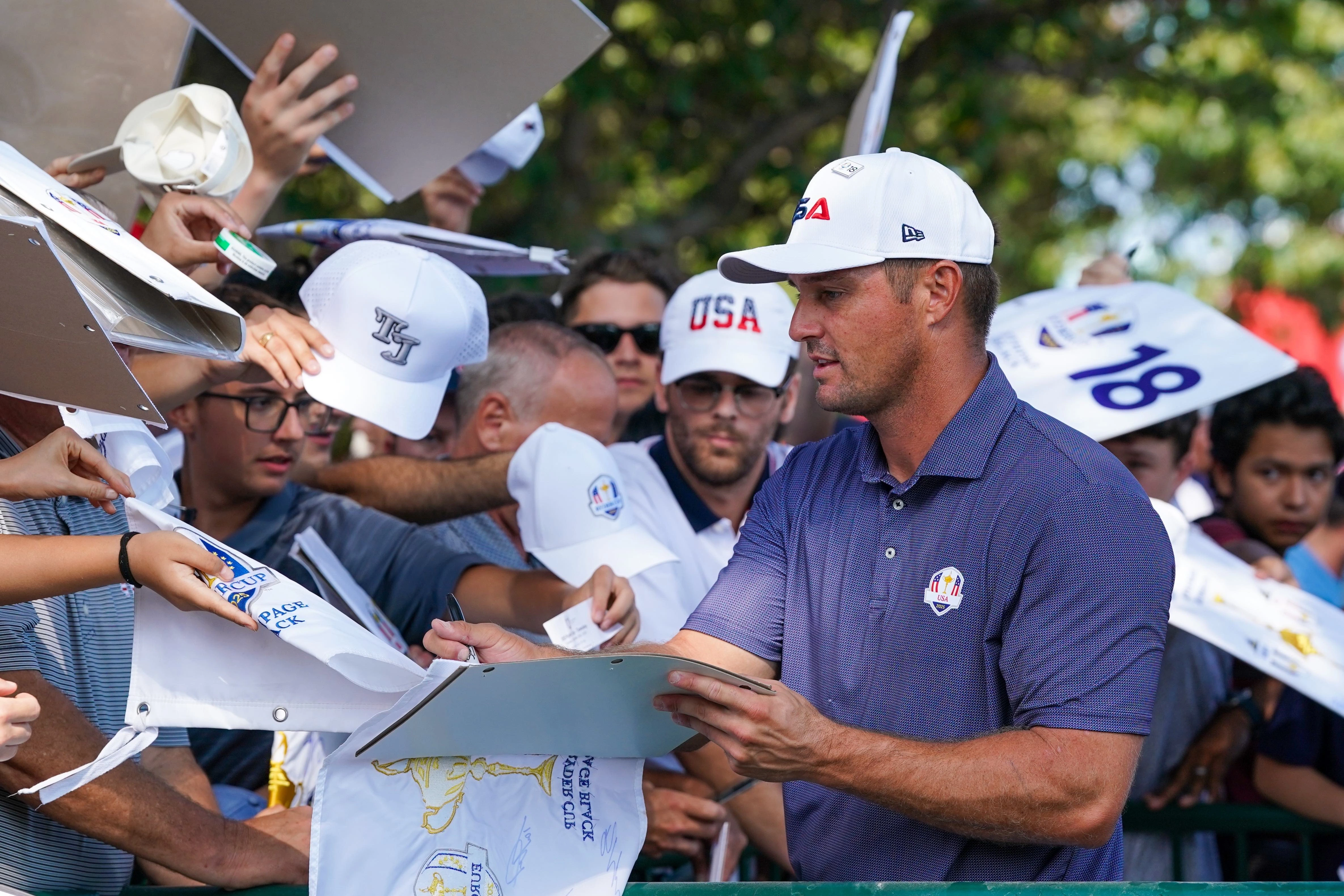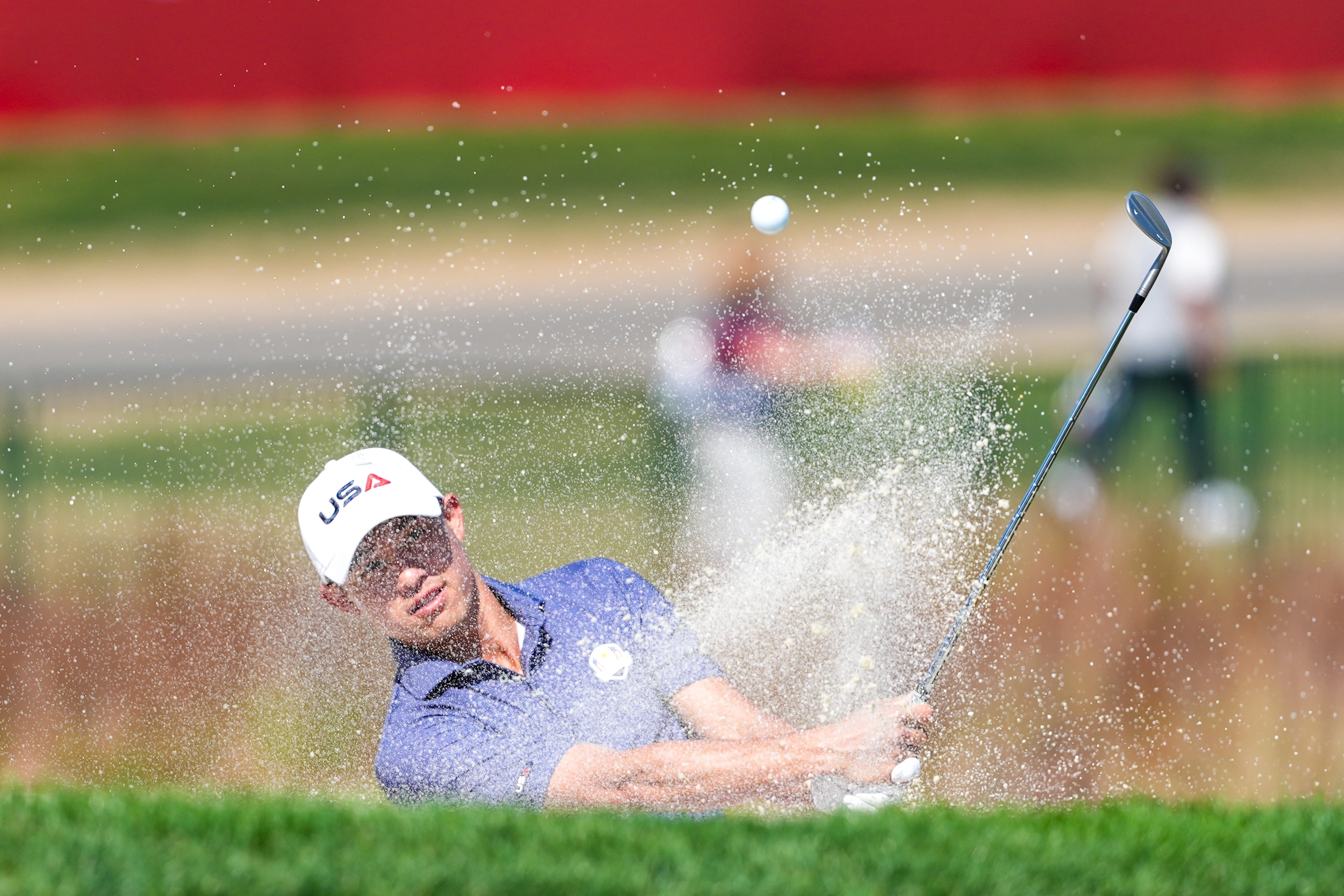When most people hear Ryder Cup 2025, images of tight putts, heroic comebacks, fist pumps, hushed tension, and explosive roars immediately spring to mind. It’s an event that captures golf’s drama like no other, a week where history is made shot by shot. Yet Bethpage Black in 2025 delivered more than just dramatic play. It also highlighted something that cannot be ignored: the galleries themselves.
We saw the good — fans bringing colour, energy, and passion. But we also saw the ugly. Heckling crossed into hostility. Booing became abuse. In a few disturbing moments, spectators forgot that the Ryder Cup’s intensity is meant to elevate the competition, not demean it. Ryder Cup 2025 reminded us that golf’s tribal theatre can inspire but can also embarrass. The elephant in the room? The galleries at Bethpage Black sometimes overshadowed the game itself, and their behaviour has become part of the story.

The Noise We Needed — and the Noise We Didn’t
The crowd at the Ryder Cup 2025 was loud, relentless, and unpredictable — the perfect storm of energy that makes this event unlike any other. For many, that is part of the magic. Golf can be slow and methodical, but the Ryder Cup thrives on fan intensity. The roar, the tension, and the palpable excitement bring players alive and fans to the edge of their seats. It’s what makes the Ryder Cup unlike any other sporting event on the planet.
Yet there is a line between passion and toxicity, and unfortunately, it was crossed in 2025. Rory McIlroy faced heckling that went far beyond friendly rivalry. A beer was reportedly thrown toward his wife Erica. Justin Rose and Tyrrell Hatton were jeered mid-shot. Even some American players admitted that the crowd’s hostility made them uneasy. In sport, the environment is part of the test, but when it distracts or intimidates, it begins to undermine the competition. The balance between fan engagement and respectful support is delicate, and in 2025 it tilted too far in the wrong direction.
Golf has long prized balance: intensity without disrespect, passion without cruelty. The Ryder Cup 2025 tested that balance repeatedly. Home crowds are supposed to be partisan, and Europe has its chants too, but when contests become secondary to personal attacks, the essence of the Ryder Cup suffers. Fans energize the event, but they cannot be allowed to dominate the narrative. Across the week, there were chants, insults, and even personal barbs aimed at players and their families. While emotion is inevitable, professional spectatorship demands restraint.
Despite the interruptions, there were also remarkable moments of support. Fans celebrated with flags, cheers, and collective joy when shots landed perfectly. These moments remind us why the Ryder Cup’s atmosphere is so special — it is both a test of skill and a theatrical display of emotion. The challenge is how to preserve the thrill of the galleries while curbing the disruptive elements that made headlines in 2025. Organisers, captains, and players all share a responsibility in finding this equilibrium.
Europe’s Cohesion vs. the U.S. Individual Firepower
On the course, the Ryder Cup 2025 highlighted the contrast between Europe’s cohesion and the raw individual talent of the U.S. team. Europe’s advantage came not just from skill, but from preparation, pairings, trust, and culture. Luke Donald’s leadership was a decisive factor. Pairings such as McIlroy-Hatton, Højgaard-Fleetwood, and Fitzpatrick-Rahm were chosen for chemistry, temperament, and complementary style, not simply for rankings or individual achievements. Donald’s meticulous, almost understated approach allowed players to feel secure and supported at every stage, fostering confidence in high-pressure situations.
From the opening foursomes, Europe operated almost as a single organism. When one player faltered, another picked up the slack. Momentum swings were absorbed rather than magnified. Communication, trust, and shared belief provided a psychological edge even before the first tee shot. Every handshake, every discussion over strategy, and every moment of encouragement reinforced a culture of unity.
Team USA, in contrast, relied heavily on individual brilliance. Scheffler, Thomas, Schauffele, Cantlay — all world-class talent — yet cohesion seemed fragile. Pre-event speculation about pairings and internal dynamics added pressure. By the end of the first sessions, the Americans were chasing momentum they never fully established. In team golf, individual skill alone is rarely sufficient to overcome a psychologically united opponent.
Sunday’s singles matches demonstrated the Americans’ resolve. Down seven points at the start, they mounted a historic comeback, scoring eight and a half points — a record-tying Sunday performance. It showcased their resilience, skill, and mental toughness. Yet Europe’s cushion was enough to secure victory. This outcome demonstrated that preparation, cohesion, and team culture often outweigh raw talent, especially in an event like the Ryder Cup, where every shot carries psychological and historical weight. Donald’s strategy, emphasizing empathy, preparation, and calm management, proved decisive. Ryder Cup 2025 was not won purely by skill — it was won by the culture, cohesion, and trust that define exceptional teams.

Lessons from the Crowd and Competition
The Ryder Cup 2025 tested more than athletic skill; it tested the spirit of the game. Crowd behaviour mirrored the event itself, reflecting both excitement and the flaws inherent in professional golf today. Millions watched worldwide — Europe, the USA, Asia, Africa, and Latin America — and the message was mixed: awe-inspiring performances were paired with episodes of behaviour that undermined the sport.
Golf’s tradition of respect — for the game, opponents, and silence at impact — is foundational. When that erodes, even the best competition suffers. Organisers face a dilemma: impose strict measures and risk sterilising the atmosphere, or allow freedom and risk abuse. Solutions may include better stewarding, stricter enforcement of codes of conduct, and proactive education campaigns to remind fans of acceptable behaviour. Captains can also model calm and poise, reinforcing expectations subtly yet powerfully.
Despite crowd distractions, Ryder Cup 2025 delivered brilliant golf. McIlroy’s iron precision, Viktor Hovland’s consistency, Ludvig Åberg’s composure, and Thomas’ fighting spirit contributed to an unforgettable week. Even in adversity, players reminded us why this event commands global attention. Every shot, every putt, every calculated risk illustrated the strategic depth and mental toughness that defines Ryder Cup golf.
Looking ahead to Ryder Cup 2027 at Adare Manor in Ireland, there is an opportunity to learn from 2025. Passion and energy should be preserved, but paired with refined crowd control and clearer behavioural expectations. If organisers succeed, the next Ryder Cup could recapture the equilibrium that makes the event legendary.
Global Significance and the Future of Golf
The Ryder Cup 2025 highlighted golf’s global reach. Millions tuned in worldwide — Europe, the USA, Asia, Africa, and Latin America. For young golfers, the Cup serves as inspiration, a lesson in dedication, strategy, and resilience — and also a cautionary tale about behaviour. Spectators, like players, influence the narrative. When energy crosses into hostility, the spectacle suffers.
The Ryder Cup is more than Europe vs. USA. It’s a global stage where golf’s values, drama, and spectacle intersect. Crowds can energize players, but they can also distort the narrative if lines are crossed. The lessons from 2025 are clear: organisers, players, and fans share responsibility for preserving the sport’s integrity.
Adare Manor in 2027 presents an opportunity to reset the balance. Irish crowds are passionate yet historically respectful, and with careful management, the next Ryder Cup can restore the harmony between excitement and etiquette. Ryder Cup 2025 may be remembered not just for Europe’s win or Sunday drama, but as a turning point in how fan engagement is perceived in elite golf.
Beyond the immediate results, the 2025 edition underscores the increasing globalisation of golf. Fans in Asia, Africa, and Latin America watched live feeds, engaged on social media, and experienced both exhilaration and disappointment. Their perception of the Ryder Cup will be influenced not only by the players’ performance but by how the event balances spectacle with sportsmanship.
Cultural and Psychological Insights
The psychological element in team golf cannot be overstated. Europe’s cohesion provided stability. U.S. reliance on individual firepower, while impressive, highlighted the limits of raw talent without structure. Psychological resilience, trust, and preparation proved decisive. In Ryder Cup history, teams that combine skill with mental cohesion often outperform raw talent teams, and 2025 reinforced this principle.
Players themselves reported that the crowd’s intensity was both motivating and distracting. Learning to channel energy from spectators, while filtering out negativity, is an essential skill for modern professional golfers. For young athletes observing the 2025 Cup, the lesson is clear: mental toughness and focus are as critical as swing mechanics.
Final Thoughts
The Ryder Cup 2025 showcased drama, skill, and history. It also highlighted the fragility of sportsmanship. Passion must coexist with respect; otherwise, the event loses its integrity.Fans, organisers, and players must all take responsibility. Strengthen crowd management, enforce codes of conduct, and celebrate the game without crossing the line. Captains and officials can model the behaviours expected of players and spectators alike. The Ryder Cup 2025 gave us brilliance, heartbreak, and reflection. Its legacy should be lessons learned and standards reinforced. When passion is matched with respect, the Ryder Cup isn’t just a competition — it’s a global showcase of what sport can be at its best.
FAQ's
Why was the Ryder Cup 2025 controversial?
Some fan behaviour at Bethpage Black, including heckling, abuse, and even threats, overshadowed parts of the competition. While passionate support is expected, certain moments crossed the line into personal attacks on players and their families, which drew criticism from media and fans worldwide. The controversy sparked conversations about the role of spectatorship in professional golf and how organisers can balance energy with etiquette.
Who won the Ryder Cup 2025?
Team Europe, led by captain Luke Donald, successfully retained the trophy. Their victory was the result of meticulous planning, cohesive pairings, and consistent performance across the first two days. While the U.S. team fought back strongly on Sunday, the European advantage built through strategy and teamwork proved decisive.
What made Europe so dominant?
Europe’s strength came from cohesion, preparation, and trust. The team’s culture emphasized collaboration over individual heroics, with players supporting each other both on and off the course. Luke Donald’s strategic pairings, psychological management, and attention to detail ensured that each player could perform at their best. In contrast, the U.S. team, despite having exceptional individual talent, struggled to maintain the same level of unity and momentum.
How should organisers respond to 2025’s crowd issues?
Stricter enforcement of conduct, better stewarding, and fan education are recommended to prevent hostility from overshadowing play. Clear communication about what behaviour is acceptable, combined with proactive monitoring, can help maintain the spirit of the Ryder Cup. Organisers might also consider initiatives to encourage positive engagement, ensuring that the energy of the galleries enhances the event rather than detracts from it.
Where will the next Ryder Cup be held?
The Ryder Cup 2027 will be hosted at Adare Manor in Ireland, known for passionate yet respectful crowds. This venue provides an opportunity to reset and reinforce the balance between excitement and decorum. Organisers, players, and fans alike will have the chance to showcase the event at its best, demonstrating how the Ryder Cup can combine thrilling competition with respect for tradition and the sport itself.
